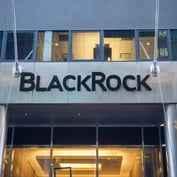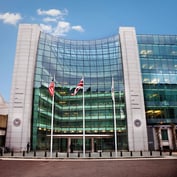A strong relative performance in the first quarter of 2020 and heightened awareness over social issues is shining a spotlight on environmental, social and governance (ESG) investing.
ESG investing has drawn more assets each year, and Morningstar data from May shows sustainable fund flows were resilient during the market selloff caused by the coronavirus pandemic. During the first quarter, the global sustainable fund universe pulled in $45.6 billion versus an outflow of $384.7 billion for the overall fund universe, the research firm said. U.S. flows accounted for 23 percent of that first-quarter figure.
Of course, ESG funds lost money during the market selloff, but they lost less than the broader market during that time, performing better on a relative basis, Morningstar said in a different report. During the first quarter, the returns of 70 percent of sustainable equity funds ranked in the top halves of their categories, and 44 percent ranked in their category’s best quartile, the firm said.
The same was true for index funds. Based on a comparison of 26 sustainable index funds with those of conventional index funds covering U.S. stocks, non-U.S. developed-markets stocks and emerging-markets stocks, 24 of them outperformed the comparable conventional index fund.
Second quarter data showed most sustainable funds finished in the top halves of their Morningstar Categories, and 18 of 26 ESG-focused index funds outperformed conventional index funds that cover the same parts of the market, the research firm said.
Social Issues Becoming More Important
The impact of the global economic shutdown because of the pandemic threw millions out of work in the U.S., leading to a focus on workplace issues, including safety, flexibility and healthcare. Moreover, the murder of George Floyd and protests over systemic racism brought a new awareness of diversity – or lack thereof.
A July survey by BNP Paribas Asset Management about ESG showed social issues are gaining prominence among investors, “highlighted by an increase of 20 percentage points since the onset of Covid-19.” Additionally, 79 percent of respondents cite social considerations as having a positive impact on long-term investment performance and risk management.
None of this surprises Craig Jonas, CEO of CoPeace, an impact holding company.
“We believe strongly that it’s a good business decision to care about the long-term future of our world,” he says.
Women and younger investors have historically driven interest in ESG investing, Jonas says, and that should continue. And financial advisors are likely to get more interest from these clients about ESG, he adds.
Catherine Banat, director of U.S. responsible investing at RBC Global Asset Management, says she’s been hearing consistently “that a lot of advisors are feeling the sudden urgent need to get educated about this because their clients are asking them questions.”
Finding Social Metrics
When it comes to ESG, the “S” part, or social, wasn’t given as much focus as environmental and governance factors, so financial advisors who want to help clients create portfolios that take into account social issues may find it a bit tough because the social pillar has the fewest metrics. Sudhir Roc-Sennett, head of ESG at Vontobel Quality Growth, a boutique of Vontobel Asset Management, has done research into diversity and corporations and agrees the social pillar is “very data challenged.”
While some companies have demographic data, other information, such as employee turnover — a potential sign of a problematic workplace — is not a required disclosure.
“There’s a lot of environmental data published,” Roc-Sennett says. “There’s a lot of governance data traditionally published. Social is still an area where we’re waiting for more regulation to make that happen, and we’re looking for voluntary disclosures.”
Banat and Jonas agree. However, Jonas says, “don’t let perfect be the enemy of good.”
Jonas adds there’s a good chance that with the greater awareness of social issues around the workplace and other areas, there will be metrics to measure, and ESG data collectors are getting better at gathering that data. He said his firm has been approached by a few researchers who are measuring corporate use of prison labor, for example. Measuring that particular information should be straightforward, he says, although on other social issues it may be more difficult.
He doesn’t believe these issues will go away. “The issues of social justice and systemic racism feel like a tipping point,” he says.
Although there are few funds that focus specifically on labor rights, health issues and/or ending racism, there are fund companies that have sustainability mandates to support employees throughout their career and talk about their relations with their community under corporate social responsibility.
A good place for advisors to start researching ESG funds is to look at those with solid credentials on E and G, Jonas says.
“I think they’re very interrelated and interconnected. Honestly, I think that pandemic, systemic racism and the climate crisis are all in there together in a lot of ways,” he says.
Independent research firms, such as Morningstar, have ESG ratings specifically on carbon, while investor advocacy group As You Sow has a fund screener tool that lets users dig into ESG funds to see where the mutual fund or exchange-traded fund’s holdings rank in terms of fossil fuels, gender equity, weapons and other traditional sustainability screens.
In their research report on investor flows, Morningstar noted that ESG investors tend to be long-term investors, something advisors should consider when their clients ask about these types of investments.
“The continued inflows in first-quarter 2020 speak of the stickiness of ESG investments,” Morningstar said in the research report about flows data. “Investors in sustainable funds are typically driven by their values, invest for the long term, and seem to be more willing to ride out periods of bad performance.”
A proposed Department of Labor rule arguing that many ESG investments are made to achieve political ends, countering an Obama-era law that gave its blessing to ESG, may give some advisors pause. If the rule goes into effect, it may make things more challenging, especially when it comes to 401(k) investments. Jonas says there is a lot of opposition to it, especially from big fund firms that are actively promoting sustainability.
“It’s really the opposite of what’s happening in the marketplace,” he says. “How can you say that dirty coal is working better than clean, renewable energy that’s cheaper?”







 September 22, 2020 at 09:45 AM
September 22, 2020 at 09:45 AM








 Copyright © 2024 ALM Global, LLC. All Rights Reserved.
Copyright © 2024 ALM Global, LLC. All Rights Reserved.